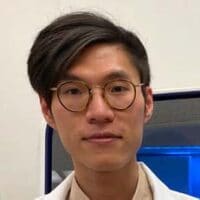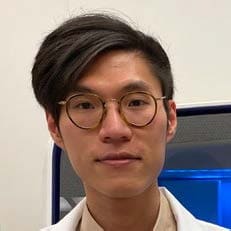Researcher Spotlight: Huan-Chang Liang, PhD
PERELMAN SCHOOL OF MEDICINE, UNIVERSITY OF PENNSYLVANIA

Chromosome breaks that result in a fusion between the NPM1 and TYK2 genes are found in a rare subtype of lymphoma known as ALK-negative anaplastic large cell lymphoma (ALCL). Individuals with these mutations have very poor prognoses. Through his LRF research, Dr. Liang seeks to characterize the role of the NPM1-TYK2 gene fusion in the development of ALCL. By better understanding these processes, Dr. Liang hopes to identify potential therapeutic targets for patients with ALCL, for whom effective treatment options are currently lacking.
Dr. Liang first became interested in cancer research while earning his Master of Research at Imperial College London, which led him to pursue a PhD from the Medical University of Vienna. During this time, he was able to work closely with industry partners in preclinical studies of cancer therapeutics. He is now a postdoctoral fellow at the University of Pennsylvania where he works closely with LRF Scientific Advisory Board (SAB) member Dr. Elenitoba-Johnson and Dr. Lim, whose research was the first to identify the NPM1-TYK2 gene fusion in ALCL. “Our group has a long history of working on hematological malignancies, especially diffuse large B-cell lymphoma (DLBCL) and ALCL. Therefore, due to my research interest, I have chosen to keep working on ALCL and have aimed at identifying novel therapeutic targets for patients.”
Encouraged by the development of targeted therapies for patients with other forms of ALCL, Dr. Liang emphasizes that there is more work to do for patients with ALK-negative ALCL. “Progress has been slow, and the emergence of novel, effective therapeutic drugs for lymphoma patients is highly warranted.”


